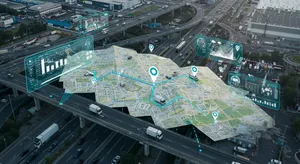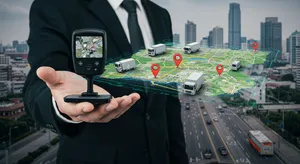GPS System Components
- Satellite constellation providing global positioning signals 24/7
- GPS receivers capturing and processing satellite signals for location calculation
- Cellular communication modules transmitting position data to monitoring centers
- Software platforms managing data processing, storage, and user interfaces
- Power management systems ensuring continuous operation and battery backup
- Antenna systems optimized for GPS signal reception and cellular transmission
- Data processing algorithms converting raw signals into actionable location information
- User interfaces providing real-time access to tracking data and system controls








